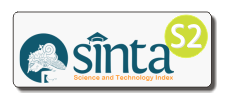Do Risk-Taking and Shariah Governance Have a Relationship with Maqasid Shariah-Based Performance?
DOI:
https://doi.org/10.14421/grieb.2022.101-03Keywords:
Islamic Bank, Risk-Taking, Shariah Supervisory Board, Maqasid ShariahAbstract
This According study examines the characteristics of the shariah supervisory board (SSB), risk-taking and Islamic bank (IB) performance. The maqasid shariah index determines the performance of an IB, and the performance assessment is more comprehensive. This research data analysis uses the dynamic panel regression estimation technique with the generalised two-step moment method to predict the relationship between shariah governance, risk-taking and performance. This study uses IBs financial data from around the world for 2014–2018, which comes from the bank scope database. The empirical results found that risk-taking has positive significance to maqasid shariah, while SSB size, expertise and cross membership have a significant negative relationship to performance. Other variables, such as leverage, are proven to have negative significance to maqasid shariah. The originality of this research is linking maqasid shariah with risk-taking and governance, expanding the sample to include many countries, and robustness checking based on Gulf Cooperation Council and non-GCC member states. The research has implications for stakeholder theory because IBs can accommodate various stakeholder interests. Governance across countries is not uniform, so it is challenging to link specifically to performance.
References
Abdullah, W. A. W., Percy, M., & Stewart, J. (2013). Shari’ah disclosures in Malaysian and Indonesian Islamic banks. Journal of Islamic Accounting and Business Research, 4(2), 100–131.
Ajili, H., & Bouri, A. (2017). Corporate governance quality of Islamic banks: measurement and effect on financial performance. International Journal of Islamic and Middle Eastern Finance and Management, 11(3), 470–487. https://doi.org/10.1108/IMEFM-05-2017-0131
Antonio, M. S., Sanrego, Y. D., & Taufiq, M. (2012). An Analysis of Islamic Banking Performance: Maqashid Index Implementation in Indonesia and Jordania Muhammad. Journal of Islamic Finance, 1(1), 012–029.
Asutay, M. (2012). Conceptualising and locating the social failure of islamic finance: aspirations of Islamic moral economy vs the realities of Islamic finance. Asian and African Area Studies, 11(2), 93–113. https://doi.org/https://doi.org/10.14956/asafas.11.93
Berger, A. N., Kick, T., & Schaeck, K. (2014). Executive board composition and bank risk taking. Journal of Corporate Finance, 28, 48–65.
Bukair, A. A., & Abdul Rahman, A. (2015). Bank performance and board of directors attributes by Islamic banks. International Journal of Islamic and Middle Eastern Finance and Management, 8(3), 291–309.
Chen, H. L. (2014). Board capital, CEO power and R&D investment in electronics firms. Corporate Governance: An International Review, 22(5), 422–436.
Daher, H., Masih, M., & Ibrahim, M. (2015). The unique risk exposures of Islamic banks’ capital buffers: a dynamic panel data analysis. Journal of International Financial Markets, Institutions and Money, 36, 36–52.
Dalwai, T., & Mohammadi, S. S. (2020). Intellectual capital and corporate governance: an evaluation of Oman’s financial sector companies. Journal of Intellectual Capital, 21(6), 1125–1152.
Fang, J., Lau, C. K. M., Lu, Z., Tan, Y., & Zhang, H. (2019). Bank performance in China: a perspective from bank efficiency, risk-taking and market competition. Pacific Basin Finance Journal, 56(February), 290–309.
Farag, H., Mallin, C., & Ow-Yong, K. (2018). Corporate governance in Islamic banks: new insights for dual board structure and agency relationships. Journal of International Financial Markets, Institutions and Money, 54, 59–77.
Farook, S., Kabir Hassan, M., & Lanis, R. (2011). Determinants of corporate social responsibility disclosure: the case of Islamic banks. Journal of Islamic Accounting and Business Research, 2(2), 114–141.
García-Alcober, M. P., Prior, D., Tortosa-Ausina, E., & Illueca, M. (2019). Risk-taking behavior, earnings quality, and bank performance: a profit frontier approach. BRQ Business Research Quarterly.
García-Herrero, A., Gavilá, S., & Santabárbara, D. (2009). What explains the low profitability of Chinese banks? Journal of Banking and Finance, 33(11), 2080–2092.
Grais, W., & Pellegrini, M. (2006). Corporate governance and shariah compliance in institutions offering Islamic financial services. World Bank Policy Research Working Paper.
Hakimi, A., Rachdi, H., Mokni, R. B. S., & Hssin, H. (2018). Do board characteristics affect bank performance? Evidence from the Bahrain Islamic banks. Journal of Islamic Accounting and Business Research, 9(2), 251–272.
Hasan, Z. (2012). Shari’ah governance in Islamic banks (R. Wilson (ed.)).
Jensen, M. C. (1993). The modern industrial revolution, exit, and the failure of internal control systems. The Journal of Finance, 48(3), 831–880. https://doi.org/10.1111/j.1540-6261.1993.tb04022.x
Jensen, M. C. (1994). Self Interest, altruism, incentives, and agency theory. Journal of Applied Corporate Finance, 7, 40–45.
Lamido, A. A. (2016). Maqasid al-shari’ah as a framework for economic development theorization. International Journal of Islamic Economics and Finance Studies, 2(1), 27–49.
Lipton, M., & Lorsch, J. W. (1992). A modest proposal for improved corporate governance. The Business Lawyer, 48(1), 59–77.
Louhichi, A., Louati, S., & Boujelbene, Y. (2019). Market-power, stability and risk-taking: an analysis surrounding the riba-free banking. Review of Accounting and Finance, 18(1), 2–24.
Mamatzakis, E., & Bermpei, T. (2015). The effect of corporate governance on the performance of US investment banks. Financial Markets, Institutions and Instruments, 24(2–3).
Mohammed, M. O., & Taib, F. M. (2015). Developing Islamic Banking performance based on maqasid syariah framework : cases of 24 selected banks. Journal of Islamic Monetary Economics and Finance.
Mollah, S., Hassan, M. K., Al Farooque, O., & Mobarek, A. (2016). The governance, risk-taking, and performance of Islamic banks. Journal of Financial Services Research, 51(2), 195–219. https://doi.org/https://doi.org/10.1007/s10693-016-0245-2
Mollah, S., & Zaman, M. (2015). Shari’ah supervision, corporate governance and performance: Conventional vs. Islamic banks. Journal of Banking & Finance, 58, 1–41.
Muhamad, S. F., & Sulong, Z. (2019). corporate and shariah governance mechanisms and earnings quality in Islamic banks: a review and evaluation of patterns. In Islamic Development Management. Springer Singapore.
Mutia, E., Jannah, R., & Rahmawaty, R. (2019). Islamicity Performance Index of Islamic Banking in Indonesia. Advances in Social Science, Education and Humanities Research, 292(Agc), 424–436.
Naciti, V. (2019). Corporate governance and board of directors: the effect of a board composition on firm sustainability performance. Journal of Cleaner Production, 237, 117727.
Nakano, M., & Nguyen, P. (2013). Foreign ownership and firm performance: evidence from Japan’s electronics industry. Applied Financial Economics, 23(1), 41–50. https://doi.org/10.1080/09603107.2012.705425
Nawaz, T. (2017). Intellectual capital, financial crisis and performance of Islamic banks: does shariah governance matter? International Journal of Business and Society, 18(1), 211–226.
Nawaz, T. (2019). Exploring the nexus between human capital, corporate governance and performance: evidence from Islamic banks. Journal of Business Ethics, 157(2), 1–21.
Nomran, M. N., Haron, R., & Hassan, R. (2016). Shari’ah supervisory board characteristics effects on Islamic banks’ performance : evidence from Malaysia. International Journal of Bank Marketing.
Nomran, N. M., Haron, R., & Hassan, R. (2018). Shari ’ ah supervisory board characteristics effects on Islamic banks ’ Performance : Evidence from Malaysia. International Journal of Bank Marketing, 36(2), 290–304.
Pathan, S. (2009). Strong boards, CEO power and bank risk-taking. Journal of Banking and Finance, 33(7), 1340–1350.
Pathan, S., & Faff, R. (2013). Does board structure in banks really affect their performance? Journal of Banking and Finance, 37(5), 1573–1589.
Prasojo, P., Yadiati, W., Fitrijanti, T., & Sueb, M. (2022a). Cross-region comparison intellectual capital and its impact on Islamic banks performance. Economies, 10(3), 1–15. https://doi.org/10.3390/ economies10030061
Prasojo, P., Yadiati, W., Fitrijanti, T., & Sueb, M. (2022b). Exploring the relationship between intellectual capital and maqasid sharia-based performance : the moderating role of sharia governance. Journal of Islamic Marketing, ahead-of-p(ahead-of-print). https://doi.org/10.1108/JIMA-07-2021-0226
Quttainah, M. A., & Almutairi, A. R. (2017). Corporate governance: evidence from Islamic banks. In Social Responsibility Journal.
Safiullah, M., & Shamsuddin, A. (2017). Risk in Islamic banking and corporate governance. Pacific-Basin Finance Journal.
Shinkafi, A. A., Ali, N. A., & Choundhury, M. (2017). Contemporary Islamic economic studies on maqasid shari’ah: a systematic literature review. Humanomics, 33(3), 315–334.
Sufian, F., & Habibullah, M. S. (2009). Bank specific and macroeconomic determinants of bank profitability: empirical evidence from the China banking sector. Frontiers of Economics in China, 4(2), 274–291.
Syafa, A., & Haron, R. (2019). The effect of corporate governance on islamic banking performance: a maqasid shari’ah index approach on Indonesian Islamic banks. Journal of Islamic Finance, 8, 001–018.
Tabak, B. M., Fazio, D. M., & Cajueiro, D. O. (2012). The relationship between banking market competition and risk-taking: do size and capitalization matter? Journal of Banking and Finance, 36(12), 3366–3381.
Tan, Y., & Floros, C. (2012). Bank profitability and GDP growth in China : a note. Journal of Chinese Economic and Business Studie, 10(3), 267–273.
Downloads
Published
Issue
Section
License
Copyright (c) 2022 Global Review of Islamic Economics and Business

This work is licensed under a Creative Commons Attribution-ShareAlike 4.0 International License.
Global Review of Islamic Economics and Business is licensed under a
Creative Commons Attribution-ShareAlike 4.0 International License



















